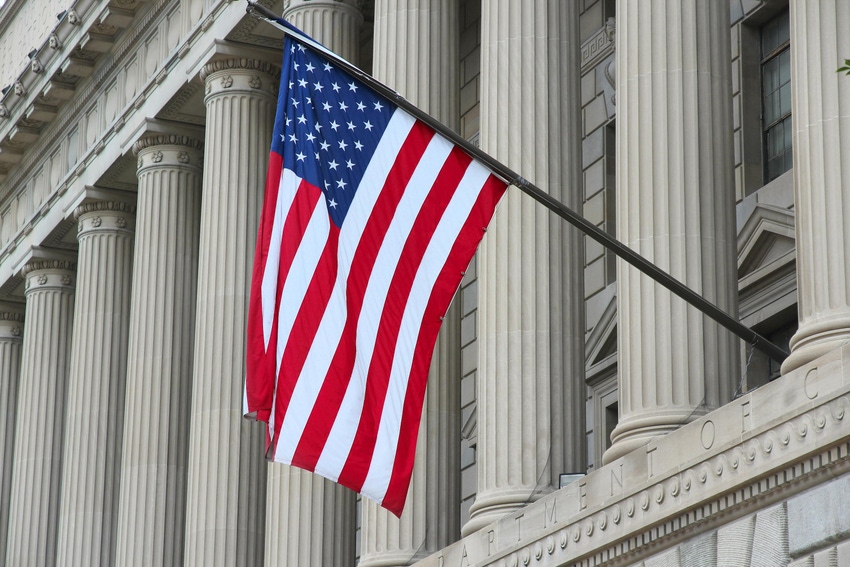NTIA's Davidson touts network openness, Internet affordability
As Congress sits idle on the Affordable Connectivity Program (ACP) and US telcos eschew open RAN, the NTIA administrator has some words of urgency and funding to spare.

WASHINGTON – State of the Net 2024 – If Congress lets the Affordable Connectivity Program (ACP) run out of funding, it would "be very damaging to the economy" and "very harmful" to the families that could no longer afford to be online. That was the warning issued here by Asst. Secretary of Commerce for Communications and Information and NTIA Administrator Alan Davidson, during his fireside chat, moderated by The Washington Post's national tech policy correspondent Cat Zakrzewski.
ACP enrollments officially stopped last week. As reported by Light Reading, more than 23 million households are now receiving a $30/month subsidy toward broadband service, and more than 327,000 tribal households are receiving $75/month per household. The program has been adding roughly 200,000 new enrollees per week over the last month, according to data from the Universal Service Administrative Co. (USAC), which administers the ACP.
Now the program is waiting on the "do nothing" Congress to do something.
Davidson noted that affordability is a key ingredient to making sure the US economy stays competitive and the digital divide someday goes away. "We are going to, in the next decade, connect everybody in America with a high-speed Internet connection," Davidson said. "That is going to happen. We're on our way to doing it but simply having a wire that goes past a family's home doesn't do that family any good if they can't afford the connection."
Included in the administration's goal of connecting every American is to "help people thrive online," Davidson said. "Without the ACP we have a hard time reaching that goal."
More funding for open RAN
Davidson also tied open RAN to the administration's goal of connecting all Americans and making a dent in the digital divide. Just hours before he took the stage, the NTIA awarded $42 million to fund a wireless equipment testing project being led by "a consortium of US carriers, foreign carriers, universities and equipment suppliers." The project will "establish a testing, evaluation and R&D center in the Dallas Technology Corridor and a satellite facility in the Washington, D.C. area," the NTIA said.
The 5G tech marketplace is "a very consolidated and static market," Davidson said. "There's really only four or five major vendors around the world who produce the equipment and the cell phone towers. And a couple of them are not trusted – Huawei and ZTE."
Davidson said the funding was part of a multiyear approach to "try to figure out how we can promote more trusted networks and particularly more open networks because openness can help us build a much more resilient supply chain than just relying on two or three vendors."
He noted that the funding and the activities announced should help convince "the people who are skeptical about this, by proving that equipment can interoperate." That holds true, it appears, even if those skeptics are the ones making the purchasing decisions for the nation's largest wireless networks.
Indeed, the industry's recent moves around open RAN prove that the profit-minded approach to building telecom networks is to stick with a few, large, market-dominant suppliers. But the government continues to use taxpayer funds to fan the barely flickering flame of open networks in the US.
Beneficiaries of that funding include AT&T and Verizon, the two carriers leading the new open RAN project, the NTIA announced. NTT Docomo and India's Reliance Jio will be "unfunded, founding members of the consortium."
As Davidson spoke about trusted companies and safeguarding Americans online, sponsorship slides from TikTok, the social media app owned by China's ByteDance, played on the screens on either side of the stage. Perhaps this was a good reminder that however sincere the administration's efforts around sustaining ACP and providing affordable Internet access for all, these goals can be held in check by lobbying, corporate interests and the fear of upsetting voters ahead of an election.
TikTok is banned from US government devices because of data security concerns. But TikTok's influence is still enormous; Joe Biden's presidential campaign uses the service to reach voters.
When TikTok's use as a campaigning tool was brought up to Davidson, he didn't condemn the conference sponsor in quite the same way so many have spoken out against Huawei and ZTE.
"I can't speak for the campaign, right?" Davidson said to moderator Zakrzewski. "They will make their own choices and assessments about how to advocate for the American public where it is, and we do know that TikTok is a very popular application right now."
Read more about:
ACPAbout the Author(s)
You May Also Like












